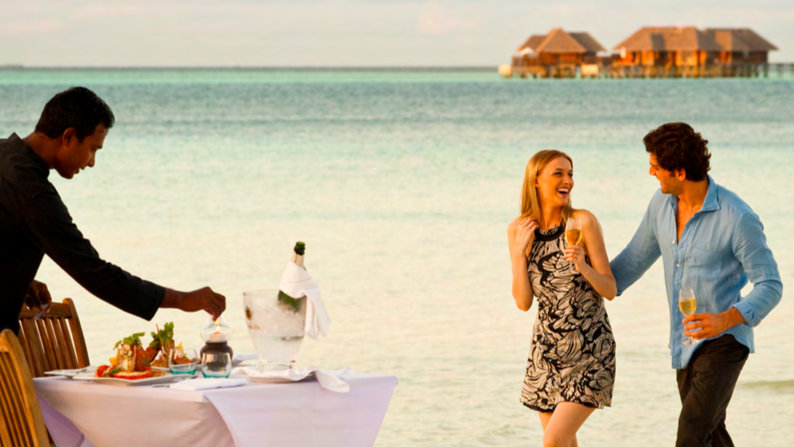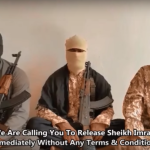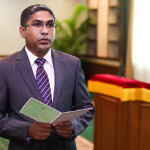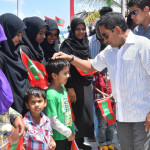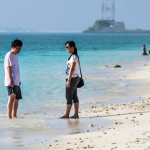President Abdulla Yameen’s declaration of a state of emergency here, a luxury honeymoon destination, made headlines across the world. The November 4 decree triggered a flurry of messages from worried guests and gave rise to multiple threads on Trip Advisor. “It is all over the news. Should we cancel everything, flights, hotel, and book with some other country guys? Please help, me and my wife don’t want to take any risks,” wrote one concerned guest.
Foreign Minister Dunya Maumoon rushed to assure tourists of their safety, stating that missing weapons and bomb scares in Malé posed no threat to, and should not concern foreigners. “The situation remains stable… The government assures the safety of the destination,” read a tourism ministry statement on the same day.
But cancellations did occur. Caroline Pacquet of Solea Vacances, a leading French tour operator, said: “Here in France, we have had many cancellations… The main problem is that one side is saying a state of emergency has been declared, while on the other end they say everything is all right. Either its an emergency or not, it cannot be both.”
A cruise liner, Ocean Insignia, carrying some 3,000 passengers visited Colombo instead. Just six days later, the state of emergency was lifted. But the damage was already done.
European tour operators and resort workers here are concerned that persisting bad press, following years of political turmoil, is eroding the Maldives’ attractiveness as a holiday destination, especially with stiff competition from Indian Ocean neighbours.
In the past, the tourism industry, centred on the one island, one hotel concept, has been shielded from unrest in the capital. Tourists are whisked straight from the airport to their resorts. One could spend weeks here and remain blissfully unaware. In 2012, when former President Mohamed Nasheed’s ouster triggered violence and protests, arrivals increased by some 20,000. The next year, arrivals passed the one million mark.
But this year, with a slump in the Russian and French markets, and a slowdown in Chinese arrivals, the government has already abandoned its target of 1.4 million tourists.
Now bad press, generated by the imprisonment of dissidents including Nasheed, and the September 28 explosion on Yameen’s speedboat, which the government insists was caused by a bomb, is making things worse.
Kuoni, the UK’s leading tour operator for the Maldives, said: “In the UK we are very concerned about escalating tensions and any increased media coverage will inevitably impact on sales. Customers have many choices and some will chose to avoid destinations experiencing political unrest.”
France, which has registered a 17 percent decline in arrivals this year, offers a case in point.
French tour operators attribute the sharp decline to three factors; competition from destinations such as Mauritius, Sri Lanka and Bali, French tourists’ reluctance to travel to Muslim majority countries in the wake of the Charlie Hebdo terror attacks and a massacre of tourists in Tunisia, and persistent negative press on the Maldives.
Bruce McNamara of Austral Lagons described the Maldives’ image as “a disaster.”
“I really don’t know what your tourism promotion board is doing. For three years, its all been negative. First there was the waste disposal issue, sea level rise, and militant Islam. Then there is the political situation, Nasheed’s imprisonment.”
The Maldives’ decision to end a six-decade moratorium also impacted arrivals. “Half of France thinks kids are condemned to death in the Maldives. We have clients who tell us they will not spend their money in a country like that,” he said.
The disproportionate outflow of Maldivians to Syria to fight with militant groups is another cause for concern. Pacquet of Solea Vacances said: “Most of our papers say Maldives is not good. It’s not a safe place.”
A majority of travel advisories for Maldives now note a general threat from terrorism.
In Switzerland, where the press did not pick up on the state of emergency, there were very little cancellations, said Paul Heimo of FTI Touristik AG, a leading tour operator.
“The political situation isn’t having an impact. My personal opinion is that the Maldives is too expensive. There are strong competitors now.
“My recommendation would be to build good 3.5 or 4 star hotels that are affordable to the European middle class. There is not as much money in Europe now. You have several five or seven star resorts and none of them are full. In the summer, they slash prices, which brings the four stars into trouble,” he said, an assessment many other tour operators also agreed with.
The lack of effort the government puts in to promoting the Maldives is only exacerbating the situation, experts have said. Things look bleak for the foreseeable future.
The tourism promotion firm, the Maldives Marketing and Public Relations Corporation, is at the centre of the inquiry into the alleged bomb plot on Yameen’s speedboat. The firm’s top brass are in jail or are being hunted on a charge of embezzling money from resort leases. Nearly US$100 million is thought to be missing.
Leaked emails obtained by the Maldives Independent shows the president’s office has ordered the MMPRC to cancel all road shows and fairs this year, including in China, Germany and Zurich.
A resort owner who wished to remain anonymous said MMPRC lost its objective by venturing into leasing islands for resorts.
“We should have more funds to inject for marketing during times like these. In most destinations where the economy is dependent on tourism, a certain percentage of industry income to state is allocated to country marketing, and they don’t spend it all year, but only when there’s a slump,” he added.
Hussain Lirar, the deputy minister for tourism, said that newly appointed tourism minister, Moosa Zameer, is drawing up a new marketing plan for the Maldives.
“Just participation in fairs will not do. We need a new approach, new thinking to market Maldives as a destination, and we are working on it,” he said.
But marketing alone may not solve Maldives’ woes.
Maldives is slated to co-host the 2016 ITB trade and travel show in Berlin, which is among the world’s leading travel markets. But calls are growing to revoke Maldives’ sponsorship.
Omid Nouripour, the foreign affairs spokesman for the Bundestag, said in a statement: “Maldives is questionable as a priority country of ITB when tourists are given an ideal world on a beach while the fundamental rights of citizens of the country are being trampled.”
It appears continuing international criticism of Yameen’s government is beginning to fuel calls, albeit cautious, within the tourism sector for a commitment to democracy and the rule of law.
“A simple pledge to restore democracy will lift international pressure,” said the general manager of an award-winning resort. Meanwhile, McNamara of Austral Lagons said: “It’s all really simple. Get something positive on the news. Just to show that Maldives is doing something to address the issues.”
Photo by Tourism Ministry

